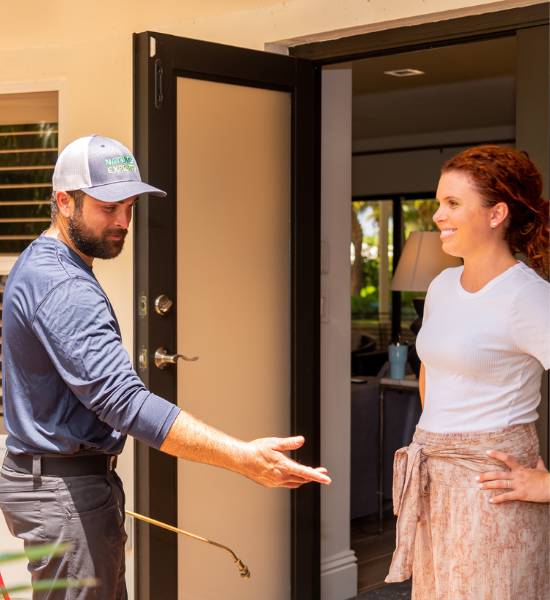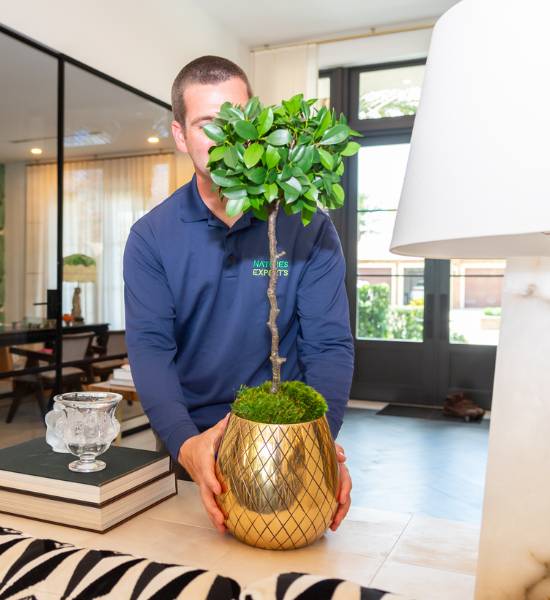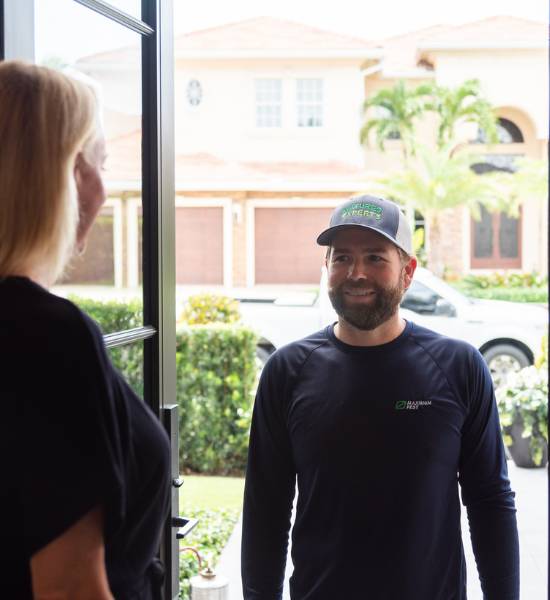Frequently Asked Questions
Get Your Answers Here!
We get a lot of plant health care and pest control questions at Maximum Pest and Fertilization. As a resource for you, we’ve compiled a list of some of the questions we’re most often asked.
If you don't see your specific question on our list, call us at 954-776-4519 or contact us online [link to contact page], and one of our experts will get you an answer!
General Questions
Each South Florida job is different, so cost is dependent on variables such as size and scope of services and whether you want regular maintenance or one-time service. Maximum Pest and Fertilization offers free, no obligation quotes so please call us at 954-776-4519 or contact us online, to learn more about our services and pricing.
Maximum Pest and Fertilization currently accepts cash, person checks, and Venmo as payment.
Yes. We are fully licensed to perform pest control and plant health care services in South Florida. Additionally, we are fully insured.
The Maximum Pest and Fertilization family of companies has been serving South Florida for over 50 years. We offer effective solutions for pest control, shrub and ornamental care, as well as pest and fertilization for your trees and palms. Call us at 954-776-4519 or contact us online, to learn more.
Plant Health Care Questions
Fertilizing your lawn keeps it healthy, thriving, and looking great. Fertilization in South Florida because our turfgrass grows year-round, unlike North and Central Florida, where it only grows in early spring.
Fertilizing yourself is an option, but beware of weed and feed products. These fertilizers can contain herbicides that can actually harm other plants in your landscape. Also, these products are often not suited for application in temperatures above 90 degrees Fahrenheit, something we see a lot of in South Florida!
You can improve your South Florida lawn in various ways. Start with proper watering, mowing, and fertilizing methods. These go a long way toward maintaining a healthy yard. Additionally, you can:
- Rake your yard regularly to help your lawn breathe by removing thatch. This also leads to better water and nutrient absorption.
- Remove weeds – pull them out by the root!
- Consider a pre-emergent herbicide treatment to get ahead of new weed growth
Need help identifying a specific lawn problem? Check for signs of disease, pests, or fungus. The pros at Maximum Pest and Fertilizer offer free no obligation quotes. You can contact us at 954-776-4519 for more information.
Regularly scheduled lawn maintenance is the best way to keep your lawn pest-free. A healthy, green lawn deters pests, weeds, and diseases. Additionally, you may want to consider professional lawn care to monitor pest issues such as chinch bugs, armyworms, sod webworms, fire ants, and fungus.
Fertilizing your South Florida trees helps them get the nutrients they may not receive from the soil. Urban and suburban soils often lack the nutrients our plants need to stay healthy. That makes fertilization an excellent strategy for helping trees remain healthy and thriving.
Established trees can benefit from 2 fertilizer treatments a year. The ideal time to fertilize your trees, palms, shrubs, and plants in South Florida is February and October.
South Florida has a range of tree pests, including Spider mites, aphids, scale insects, whiteflies, and borers.
Pest Control Questions
This, of course, varies depending on such factors, including the size of the home, business, or lawn we are treating, which service or program or service the customer requests, and the extent of the service we treat. Please call us at 954-776-4519, and we’ll gladly give you all the information you need to decide what service is best for you. Maximum Pest and Fertilization offers free no, obligation quotes.
There are many advantages to having a professional company like Maximum Pest and Fertilization handle your pest problems. We are trained in identifying pests and plant conditions and use this information to determine the appropriate treatment strategy. For example, some ant species will respond to a spray pesticide by “budding,” a survival strategy that only compounds the issue by splitting a single colony into two or more. Additionally, professionals are licensed and trained in properly handling pesticides and treatment materials to ensure they're handled safely and responsibly. This goes for pesticides as well as fertilizers, herbicides, and fungicides.
Cold weather does kill some bugs, such as male mosquitoes as well as members of wasp, hornet, and yellowjacket colonies, except fertilized queens. These queens hibernate during cold weather. Other insects, like cockroaches, find a warm spot to hide in cold weather, and others, like monarch butterflies, migrate as the temperatures fall.
Many bugs come out in the winter in South Florida, but they’re less active than in warmer months. This means they don't move well and can't reproduce in colder weather. Since Florida’s winters are mild, many outside insect pests don't die off or hibernate but go dormant instead.
Florida’s temperatures stay relatively warm in winter, and some bugs, like ants, termites, roaches, and silverfish, are often more active in the wintertime – particularly indoors.
Most mice and rats enter homes through small cracks and crevices. They can be live-trapped, snap-trapped, or poisoned. Poisoning is not recommended since poisoned rodents could die inside your home, creating additional pest activity (flies) and an intolerable stench.
If you have a rodent problem, the best solution is to get a professional inspection and recommendations for exclusion methods to keep mice and rats at bay and out of your home.
Rats are usually nocturnal but can adjust their schedules based on human activity and food availability. Rats may also become active during the day in areas if they become accustomed to humans.



